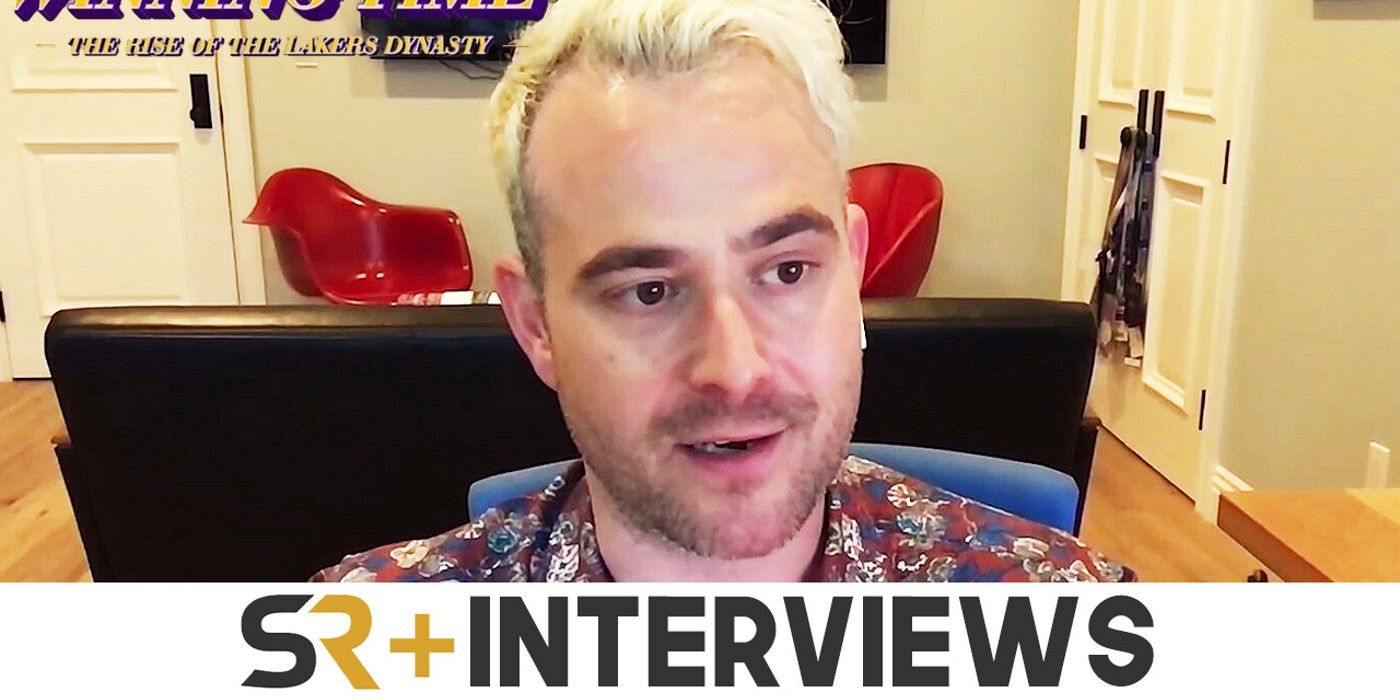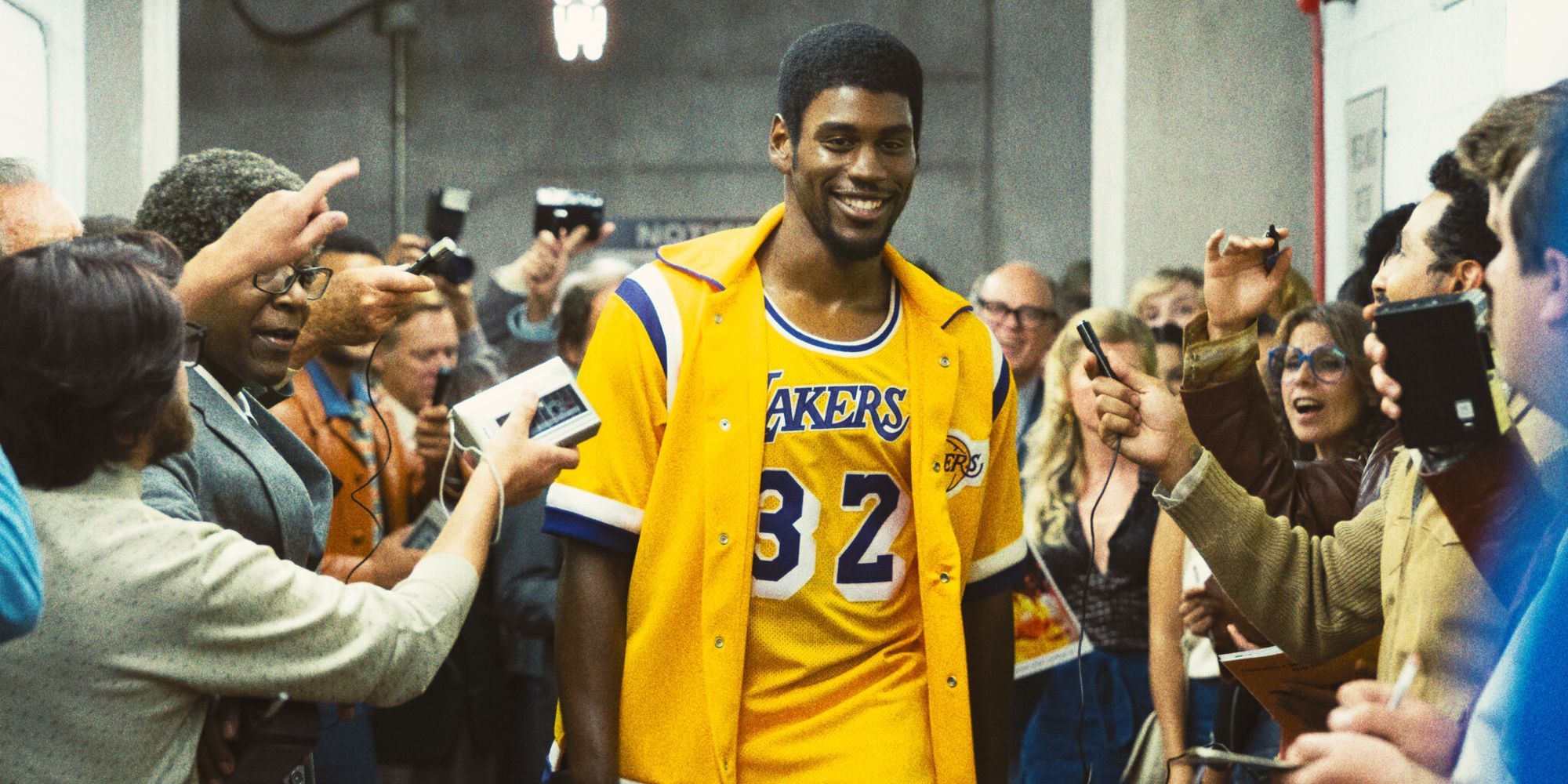HBO's new drama Winning Time chronicles the rise of the 1980s Los Angeles Lakers dynasty, depicting an era where the team won five NBA Finals. Led by new owner Dr. Jerry Buss, star point guard Magic Johnson, and others, the Lakers electrified the league with their flashy "Showtime" style of play. Tasked with bringing this wild tale to the screen is showrunner Max Borenstein, who is perhaps best known for his work in the MonsterVerse franchise.
Screen Rant spoke with Borenstein about what drew him to Winning Time, learning new things while working on the show, and much more.
Screen Rant: I know you from your MonsterVerse work. So this feels like, at least at the surface, a bit of a departure. How did you get involved with this series and why did you want to bring this story to life?
Max Borenstein: I grew up in LA and I grew up as a fan of basketball. My first sports memories are watching Magic Johnson and Kareem and the Showtime Lakers, so I was kind of a natural in that respect. This was the moment where LA basketball transformed culture. The moment the book was brought to me by Jim Hecht, who optioned it initially and is an enormous Lakers fan, and saw the potential, we were introduced by mutual friends and he and HBO, Adam McKay, and his partner Kevin Messick, were looking for a showrunner to come aboard and create the show. I realized that in reading the book, there was so much I didn't know. Particularly, the way in which this kind of epoch about the beginning of a basketball dynasty could be and really is a lens onto a transformative moment in culture that we feel the ripples of today.
You mentioned learning new things. What were you most surprised to learn that was 100% true?
Max Borenstein: Oh, my God. Well, you know, I keep saying we have a rule on this show, which is that all of the things that will make an audience gasp and go to Wikipedia and say, "That can't possibly have happened!" and look it up, all those things are 100% true. The list goes on. But without giving away spoilers, the fate of Jack McKinney. The reason why Jerry Tarkanian doesn't wind up the head coach of the Lakers. The way that Pat Riley didn't begin as the Armani-wearing sex symbol. The trajectory of the career of Spencer Heywood, which transpires largely in the back half of the show. These are all things that I had no idea about when I came to the project, and I was already a fan. I think those are some of the most compelling things to watch.
Yeah, you're talking about the Wikipedia deep dives after every episode, I had to stop and be like, "I have to look up if that really happened." And it did.
Max Borenstein: I love that.
Talking about just fandom pressure, because you've worked on MonsterVerse, you've tackled in Game of Thrones, and then the Lakers themselves, where do they all rank in terms of responsibility and pressure that you felt for the fans of the Lakers?
Max Borenstein: There's a similar thing. You feel a tremendous responsibility to the fans when you're honored with the ability to tell that story. For me, it always helps to be a fan, and I am. I'm a huge Lakers fan, sometimes disturbingly diehard, so I know what that's like. I know what I would care about. I know that I would bring a critical eye to any show that was trying to tell that story. At the same time, I also know that I wouldn't be interested in telling a story if it was only a story for fans. I think part of what's beautiful about it, is that we are interested in the way that this is a lens on to things outside the court, in the same way that any great television show about a specific thing, hopefully, attempts to do. We're trying to use this as a lens onto American culture.
Just the look and feel of the show is so incredible, you really captured the time, and the cast, when they started coming together, who was the most difficult person for you guys to find?
Max Borenstein: I think Francine Maisler would tell you -- she cast the pilot and is one of the great casting directors alive and has worked wonders -- I think she would probably tell you that Kareem Abdul Jabbar was the hardest character she's ever had to cast. Because not only is he a real person who you have to match in terms of likeness, he's also seven feet tall. Also, the actor has to play basketball believably, and beyond that, Kareem is such a specific figure. He's a guy with gravitas, intellectually. They had a nationwide search, worldwide search, really, and we saw dozens, they saw hundreds, and the casting Gods smiled, because they called one day and they said, "Look, he's never acted before, but there's a guy who has a doctorate in education policy, who's seven-foot tall and played for the Harlem Globetrotters, and that's Dr. Solomon Hughes." And he is, turns out, also gifted and an incredibly hard worker and manages to stand toe-to-toe with this cast. They're some of the finest, most experienced actors working and [he] holds his own.
You mentioned you like to work on things that you're a fan of. I'm just curious, is there a type of project you haven't tackled yet that you would love to get a crack at?
Max Borenstein: That's a great question. I mean, I think honestly, this project. It's right in a sweet spot for me. Because I am obsessed with LA. I'm obsessed with history. I'm obsessed with American culture. So this has given me such a canvas and such freedom. HBO has been so supportive that this isn't just going to be constrained to being a show about what happened on the court, or what's in the Wikipedia page about the Lakers. That we are allowed to bring to it -- and when I say we, me, but also, I always encourage everyone on the crew, our costume designers, our production team, all of them – to bring to the project their own experiences of that era, because we all have it. So it really is a love letter to an era. It's a love letter to these characters. It's been a dream to work on.


